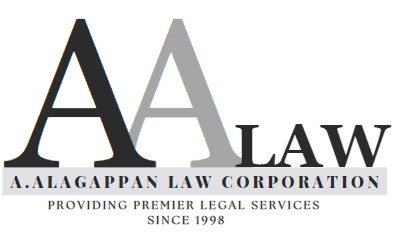
Work Injury Compensation
WORK INJURY COMPENSATION ACT
The Work Injury Compensation Act ('WICA') came into force on 1 April 2008 replacing the Workmen's Compensation Act. WICA applies to all workplace injuries that happen on and after 1 April 2008; for accidents that occurred before 1 April 2008, the Workmen's Compensation Act will continue to apply.
Unlike the Workmen's Compensation Act which covers only manual workers and non-manual workers earning $1,600 per month or less, WICA covers all employees whether they are manual or non-manual workers and regardless of their level of earnings.
What is the Purpose of WICA?
WICA aims to provide a quick and simplified process for obtaining compensation for workplace injuries that is an alternative to claiming for damages under the common law.
Unlike civil lawsuits against the employer, compensation is payable under WICA on a 'no-fault basis', as long as an employee suffers an injury arising out of and in the course of his employment. There is also a fixed formula in the Act on the amount of compensation to be awarded, and capped so that the financial liability on the employer is limited.
Who Can Claim Compensation under WICA?
Employees who sustain injuries or who contract occupational diseases arising out of their work, or the estates of employees who die in a work-related accident, are entitled to claim work injury compensation. WICA covers all employees engaged under a contract of service or apprenticeship, regardless of their salary.
Notable Exceptions - Self-employed persons, independent contractors, domestic workers, members of the Singapore Armed Forces, officers of the Singapore Police Force, the Singapore Civil Defence Force, the Central Narcotics Bureau and the Singapore Prison Service are not covered by WICA.
What is Covered under WICA?
An injured employee can make a claim under WICA for personal injury by accident arising out of and in the course of his employment - i.e. arising during working hours or while on official duties; including accidents that happen while travelling to and from his place of work in company provided transport (not by public transport); and injuries sustained abroad while on overseas assignments.
What are the Compensation Benefits under WICA?
Subject to the maximum amounts prescribed by WICA, an injured employee or, as the case may be; the estate of an employee who dies in a work-related accident is entitled to claim -
medical expenses, including medical consultation, hospitalisation, treatment and surgery, artificial limbs and surgical appliances;
compensation for Permanent Incapacity or Death; and /or
wages while on medical leave,
where applicable
What are the Limits/Maximum amount that can be Claimed under WICA?
For medical expenses, these must be incurred within one year from the date of the accident, or up to a cap of $25,000, whichever is reached earlier.
For Permanent Incapacity, the maximum is $180,000 x [% loss of earning capacity] + a further 25% if you suffer permanent total incapacity (i.e. You suffered 100% loss of earning capacity).
For death, the compensation amount payable to your dependents is subject to a maximum of $140,000.
For medical leave wages, full pay up to 14 days outpatient medical leave, and full pay up to 60 days hospitalization. Once this limit is reached, two-thirds of salary is payable up to a maximum period of one year following the date of the accident.
Is Insurance for WICA Coverage Compulsory for Employers?
Yes for manual workers regardless of their salary and non-manual workers with monthly earnings of $1,600 or less per month who are already covered prior to 1 April 2008. For employees newly covered under WICA (i.e. non-manual employees earning above $1,600 per month), insurance coverage is not compulsory but it is recommended by the MOM that Employers also buy insurance against claims under WICA for all employees.
What is the Time Limit for Filing a Claim under WICA?
The time limit for filing a claim with the Ministry of Manpower ('MOM') is one year from the date of the accident. After this 1 year period, no claims under WICA will be entertained.
What are the Accident Reporting Requirements under WICA?
Within 10 days of the accident, the employer is required to file an accident report with the Commissioner of Workplace Safety if the accident has resulted in the employee being unfit for work for 3 consecutive days or is admitted in hospital for 24 hours or more. Failure to report such accidents is an offence that carries a fine of up to $5,000 for first time offenders and up to $10,000 and or a jail term for subsequent offences.
What is the Procedure for Filing a Claim under WICA?
The steps for filing a claim under WICA are:
| Step 1 - | The employee must submit a claim application form to MOM within one year from the date of accident. |
| Step 2 - | The employee is required to undergo a medical examination to assess the extent of the injury. The employer will submit the Medical Report Form for Work Injury Compensation to the treating clinic or hospital and pay the requisite medical report fees. |
| Step 3 - | The treating clinic or hospital will send the completed medical report to the MOM; upon which the MOM will assess the compensation amount and issue a Notice of Assessment (which states the amount of compensation payable) to the employee, employer and the insurer. Any party who wishes to object to the amount of compensation may do so within 14 days of date of service of the Notice of Assessment. The MOM has discretion whether or not to accept objections filed after the 14 day period. |
| Step 4 - | If there are no objections to the Notice of Assessment, the assessment is final and conclusive on the 15th day and the employer or its insurers has/have 21 days to make payment of the assessed compensation amount to the injured employee. |
What are the Procedures for Disputing the Compensation in the Notice of Assessment?
The objecting party must file a notice of objection within 14 days of service of the Notice of Assessment.
During this time (but not later than 28 days after service of the Notice of Assessment), the injured employee can elect any of the following courses of action:
Withdraw his objection and accept the assessed amount as compensation; or
Proceed with the dispute resolution process provided under WICA; or
Withdraw his claim under WICA and commence a lawsuit against his employer under common law.
What Happens if Parties do not Agree on the Compensation in the Notice of Assessment?
The MOM will conduct a pre-hearing conference to see if the parties are ready to agree on the compensation amount. If no compromise is reached at this stage, MOM will refer the case to the labour court for Hearing. If the compensation in dispute relates to a permanent incapacity, MOM will refer the employee to the Work Injury Compensation Medical Board for a final medical assessment. The medical assessment by this Medical Board is final and no further objection to the percentage of the permanent incapacity will be considered by the Court. The employer has 21 days from the judgement order to make payment of the compensation.
What are the Penalties if the Employer Defaults in Payment of Compensation under WICA?
Failure to pay the compensation (as assessed) is an offence carrying a fine of up to $10,000 and or a jail term of up to 12 months. In addition, the employer may be required to pay interest on the compensation amount for each day the payment is late.
What is the Function of the Work Injury Compensation Medical Board?
The Work Injury Compensation Medical Board's (previously known as Workmen's Compensation Medical Board) primary function is to assess cases where objections are raised (by the insurer, employer or employee) to the initial assessment of the employee's medical condition. The medical assessment is conducted by a panel of two specialists appointed by the Board.
(adopted from Law Society of Singapore)


